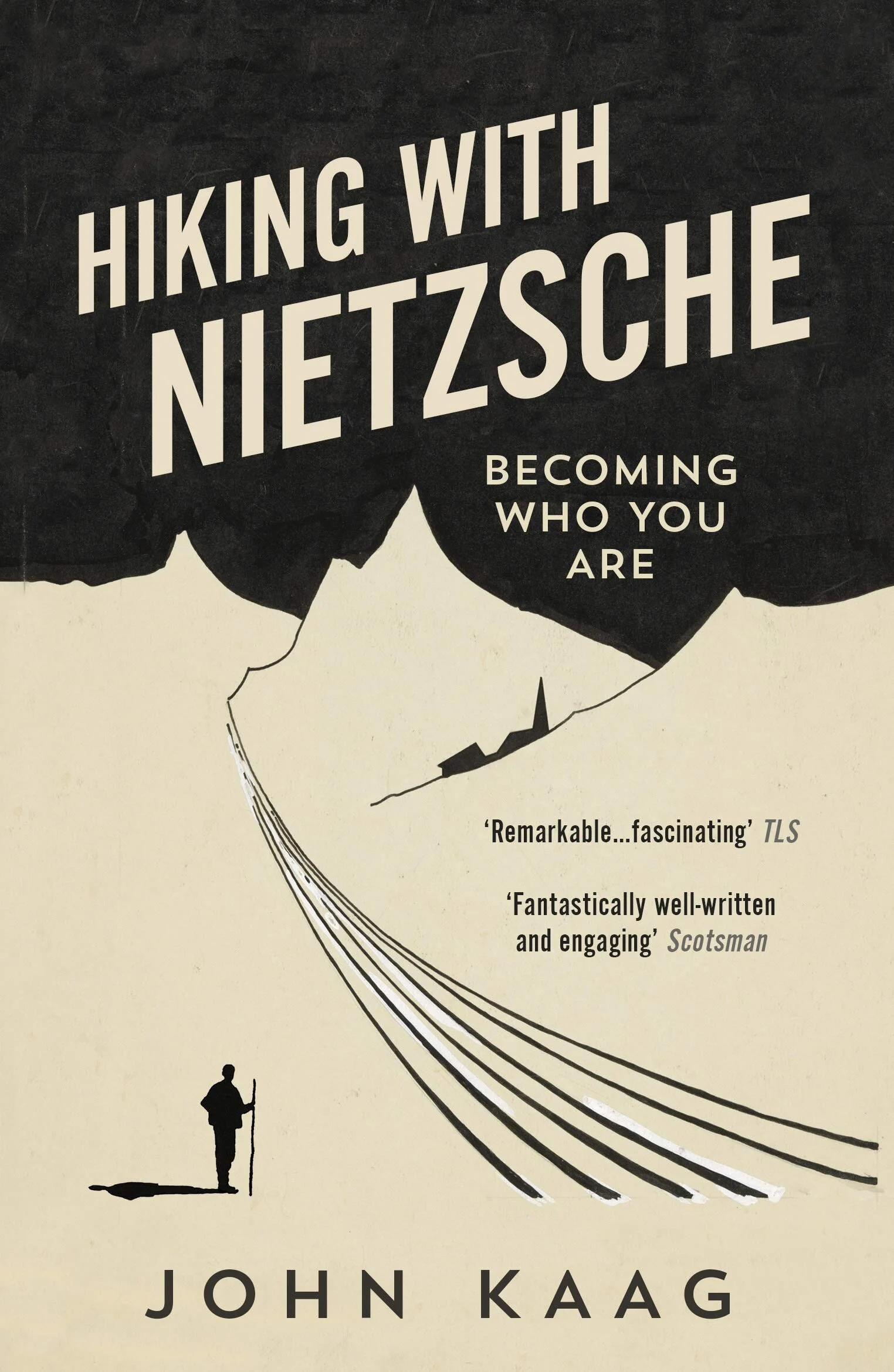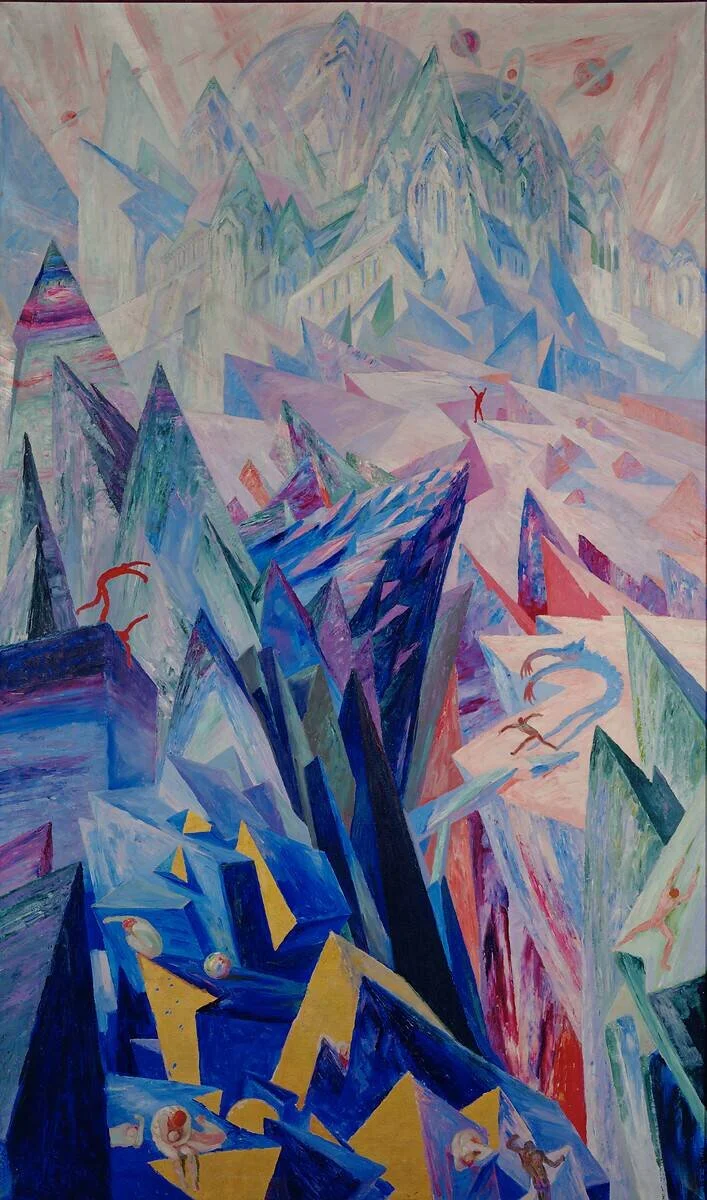Hiking with Nietzsche by John Kaag
Set for yourself goals, high and noble goals, and perish in pursuit of them. I know of no better life purpose than to perish in pursuing the great and the impossible: animae magnae prodigus.'
~ Friedrich Nietzsche, Notebook, 1873
Topics: Nietzsche, Philosophy, Memoir
Author: John Kaag (twitter)
Year: 2018
No. pages: 229
His Twitter: @JohnKaag
CONTENTS:
📌 The Brief Summary of the Books (3 sentences)
🧠Why you should read this book?
✏️ My favourite quotes
📚Great books this book refers to.
📌 The Brief Summary of the Book (3 sentences)
This book is a perfect introduction into the life and philosophy of Friedrich Nietzsche. All other books on Nietzsche focused either on his particular works, or explored his life. Professor Kaag brilliantly combines the two and also makes Nietzsche more contemporary by applying the philosopher’s ideas to his own struggle with depression.
🧠Why you should read this book?
I was asked the question ‘Where to Start Reading Nietzsche?’ many times. It happened mostly when people saw me with the volume of Nietzsche in my hands. For a long time I had no answer to this question. I often directed them to the brilliant biography of Nietzsche by Sue Prideaux, but I was never sure that anyone would read 300-page bio without knowing a little bit about Nietzsche’s ideas.
Professor Kaag’s book, however, is a brilliant introduction into the life of Nietzsche and his works. It tells his own personal story of Nietzsche and how his ideas saved Kaag’s life. In its essence this book tries to answer the question of ‘What would Nietzsche think about our times?’
The answer that Kaag provides to this question connects our own life with the life of Nietzsche.
Today, when somebody asks me the question ‘Where to Start Reading Nietzsche?’ I direct them to ‘Hiking with Nietzsche’ by John Kaag. It is a perfect place to start.
You can read my Medium article on this book here.
✏️ My favourite quotes
The Path to Genius, Wenzel Hablik.
Free spirit, self-conqueror, non-conformist - Nietzsche’s existential hero terrifies and inspires in equal measure.
The questions that scare us the most are precisely the ones that deserve our full and immediate attention.
‘What was once done ‘for the love of God’ is now done for the love of money’ Nietzsche
‘There exists in the world a single path along which no one can go except you: whither it lead? Do not ask, go along it.’ Nietzsche
Kaag’s beautiful passage on the importance of walking: ‘Walking is among the most life-affirming of human activities. It is on the way we organise space and orient ourselves to the world at large. It is the living proof that repetition - placing one foot in front of the other - can in fact allow a person to make meaningful progress.’
‘I profit from a philosopher only insofar as he can be an example’ Nietzsche
‘Before fate strikes us, we should guide it.’ Nietzsche
‘To live alone one must be a beast or a god’ Aristotle, Nietzsche adds to this ‘There might be the third case, when one is both, and that is being a philosopher;’
‘Art though the victorious one, the self-conqueror, the ruler of thy passions, the master of thy virtues?’ Nietzsche
‘To be ignorant of what occurred before you were born is to remain always a child’ Nietzsche
‘Methinks that the moment my legs begin to move, my thoughts begin to flow.’ Thoreau
‘Quiet: the one thing the herd cannot abide.’ Adrono
‘Being a parent is to live out such a disjunction between duty and personal freedom - to love a child with one’s entire being, but to preserve something of one’s identity that parenting cannot touch. Nietzsche explains how this divided self is not only possible but inevitable.’
📚Great Books It Refers to:
Emerson’s essays ‘Experience’, ‘Compensation’
Diogenes Laertius, ‘Lives of Eminent Philosophers’
Arthur Schopenhauer, ‘The World as Will and Idea’, ‘Studies in Pessimism’
Theodore Adorno, ‘The Courage to Be’
Friedrich Hölderin’s essay ‘Becoming in Dissolution’
Friedrich Hölderin’s book ‘The Death of Empedocles’
Herman Melville’s ‘Bartleby the Scrivener’
Note: This list doesn’t mention any of N’s works. The author of this books goes through all the major works by Nietzsche. I decided not to highlight in this list every single work by Nietzsche since it would be of no use.
Notes / Podcast / Interesting Facts
What have you truly loved up till this moment, what has drawn your soul aloft?
The idea that comes to me often, but articulated much better by Kaag & Nietzsche: ‘Wagner & Nietzsche shared a deep contempt for the rise of bourgeois culture, for the idea that life, at its best, was to be lived easily, blandly, punctually by the book.’
At the age of fifteen Nietzsche established a book-club called Germania, where he and his friends used to debate deep ideas.
Kaag mentions that Ralph Waldo Emerson and Nietzsche both embodied the idea that philosophy should be a subject of mindless memorization but of enacting experience.
Kaag quotes Nietzsche saying about the importance of history in our lives.
Kaag points out that many great philosophical ideas and thoughts came to famous thinkers while they walked: Buddha, Socrates, Aristotle, the Stoics, Jesus, Kant, Rousseau, Thoreau - these thinkers were never still for long. Great thoughts come while we are in the move, we are in transit, now when we are still’ I added this passage into my notebook, to remind myself about this enriching activity.
The hardest part of Nietzsche life (among many things) was his struggle to preserve the individualism, while interacting with society. That’s what he explores in his Zarathustra. Zarathustra, who is a hermit, has to come down to people, since he seeks companionship.
The idea of ‘Last Man’ - a figure that represents the lifeless efficiency of the modern day. According to Zarathustra, the Lat Man views safety and comfort as the root of all happiness.
For the Ancient Greeks there was no such idea of ‘art fort art’s sake’, for them the point of art was to see the tensions and contradictions of life - even the despised and hideous.
I loved how Kaag describes the essence of artist who we attribute to the Romantic period: ‘the point of life was to find oneself in nature, to be inspired by spirit of the cosmos, to explore the deepest subjective feelings - aesthetic, moral, and spiritual - in the face of nature’s universality’
The whole point of life was the aesthetic pleasure, but this experience could also easily invalidate the life’s purpose. ‘The mass production of art could be used to distract, mask, or blind an audience.
There is an insightful line on the free will, which describes my philosophy of life: Flourishing of the self depends on two things: first, that it can choose its own way to the greatest extent possible, and then, when it fails, that it can embrace the fate that befalls it.’
Gaius Octavius of Prima Port. (The First Emperor of Rome)
Kaag describes brilliantly Nietzsche’s idea of ‘master and slave’ mentality. He cites the statue of Gaius Octavius of Prima Porta, who was the first Emperor of Rome.
‘The “good” for the master is the power to advance, to assert oneself, to make progress. That which is “bad” is the opposite: weak, slow, cowardly, and indirect.
In this context the world ‘master’ doesn’t mean to rule over someone else other than yourself: your passions, virtues and strengths. While the opposite is true for the slave mentality. Once again, the ‘slave’ in this context doesn’t mean to be owned by someone, but to be controlled by certain weak impulses such as putting the blame on the someone who one could think of oppressor. What makes one ‘a slave’ in this context is that you renounce your right to assert yourself, to make progress, and to advance.
Nietzsche, of course, understands that there are plenty of historical examples that could justify the resentment, when one is being oppressed. But his, according to him, needs to be kept in check, since having a master mentality comes naturally and couldn’t be blamed.
An example from the natural world could be of an eagle and a sheep. For sheep, eagle is a vicious predator, but for eagle it is natural to eat the sheep.
Kaag links in his book the desire for good health, and particularly intensive fasting as a wish for an individual to take control of your body. As an anorexic person, he describes how his intensive fasting focused on his wish to get full control of his life through his body.
“After Aristotle died, in 322 b.c.e, many of his students formed the Peripatetic school, a group of wandering lecturers named after the Greek perpatetikos (“walking”). The ancient sages of India and Nepal would stay at home during the rainy season, but as soon as it ended, they too would be in motion, thinking and teaching. The Buddha, Jesus, Augustine, Rousseau, Wordsworth, Coleridge, Emerson, Thoreau, James, Rimbaud - all of them, and many more, were walkers.”




